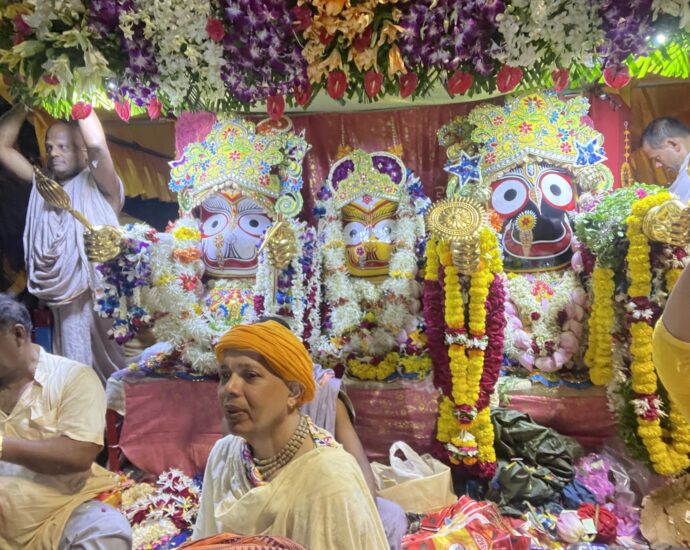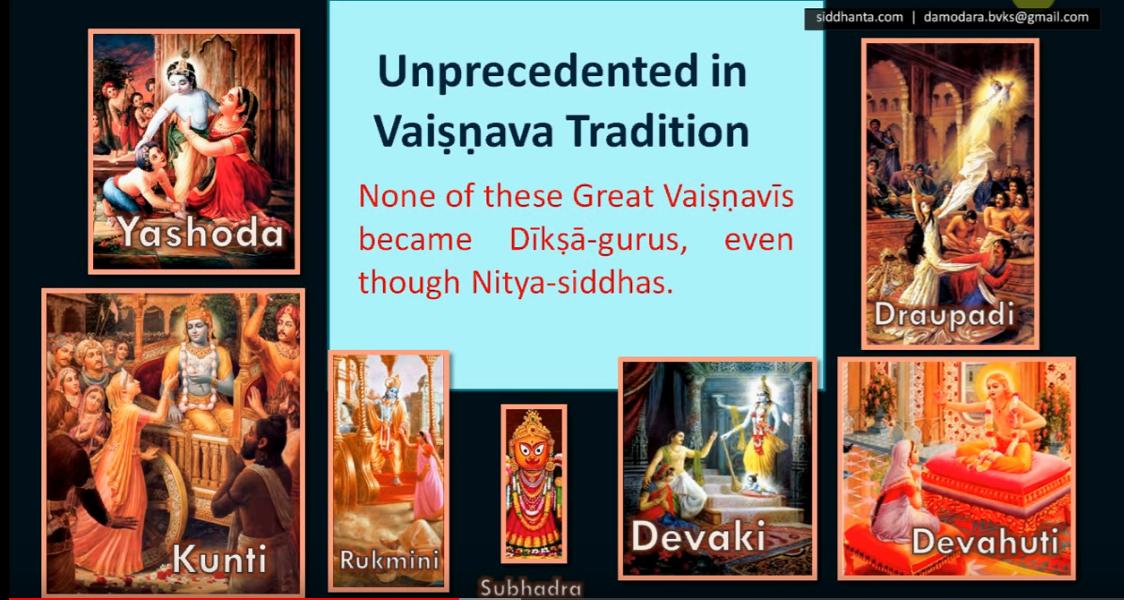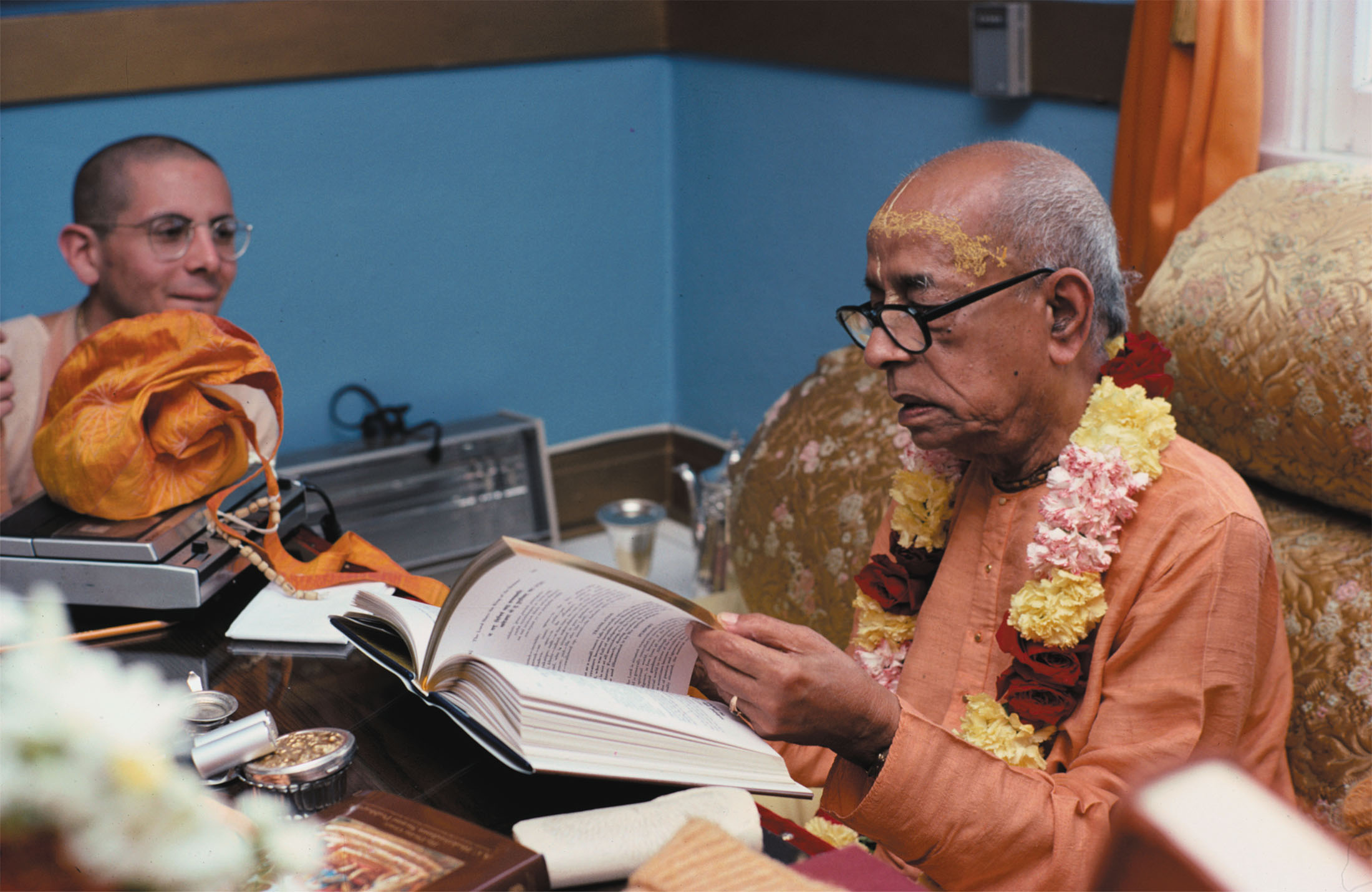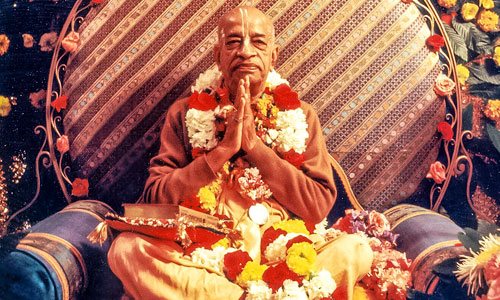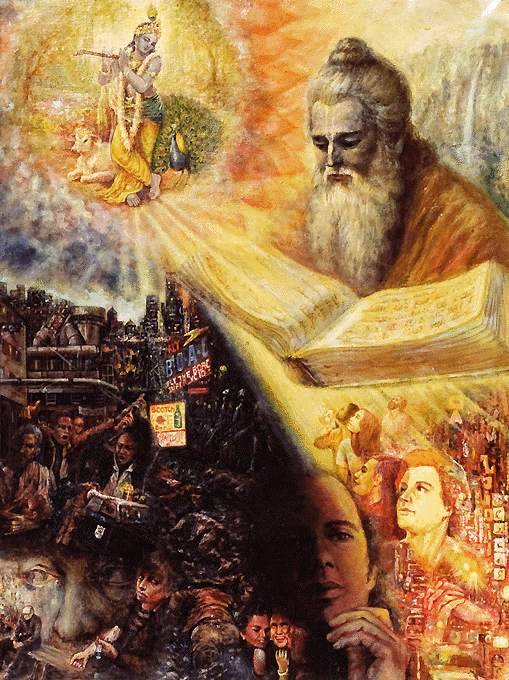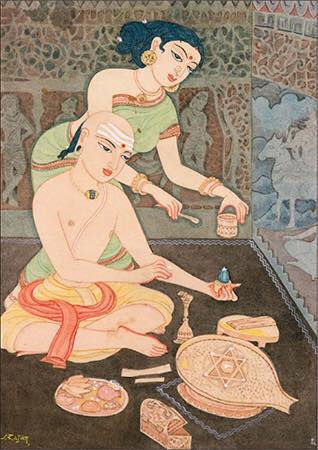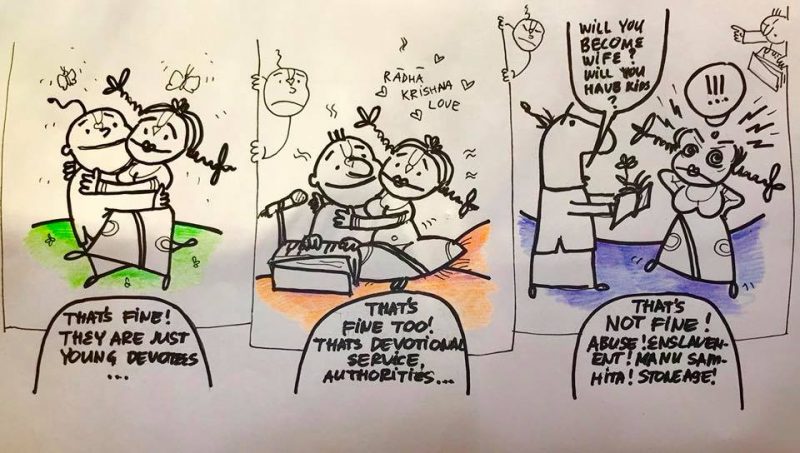Vedic Hermeneutics Seminar by Krishna-kirti Das (BVKS) and Damodara Das (BVKS)
Day 1: Why Guru AND Sadhu AND Sastra? Day 2: Fundamental rules for Harmonization Day 3: Case Studies and Principle-detail rules Continue Reading
Behave Ideally or Do Not Preach
No one will be able to explain for irresponsible man – how will feel his chaste wife when he will spend hours and hours (in service) with other women. Because He do not know what does it mean – responsibility. Because he has no chaste wife. Why bother? He doContinue Reading
“Vaisnava-diksa according to Narada Pancaratra: Can a Female Devotee be a Diksa-guru?” is now available on Amazon
“Vaisnava-diksa according to Narada Pancaratra: Can a Female Devotee be a Diksa-guru?” by Damodara Das ( BVKS ) and Krishna Kirti Das ( BVKS ) is now available on Amazon in paperback and also as a Kindle ebook. In order to settle all questions as to the circumstances under whichContinue Reading
The harmful symptoms of the age of Kali
Śrīmad-Bhāgavatam 1.16.21 TEXT 21 arakṣyamāṇāḥ striya urvi bālān śocasy atho puruṣādair ivārtān vācaṁ devīṁ brahma-kule kukarmaṇy abrahmaṇye rāja-kule kulāgryān SYNONYMS arakṣyamāṇāḥ—unprotected; striyaḥ—women; urvi—on the earth; bālān—children; śocasi—you are feeling compassion; atho—as such; puruṣa-ādaiḥ—by Rākṣasas; iva—like that; ārtān—those who are unhappy; vācam—vocabulary; devīm—the goddess; brahma-kule—in the family of the brāhmaṇa; kukarmaṇi—actsContinue Reading
Sastrartha debate on FDG between Hridayananda Maharaja, Damodara Dasa ( BVKS ), Prahladananda Swami and others
From: Praghosa (das) SDG (IRL) If that letter is the only thing that counts, then Srila Prabhupada was mistaken when he he wrote this: “Suniti, however, being a woman, and specifically his mother, could not become Dhruva Maharaja’s diksa-guru.” (SB 4.12.32 purport) Hare Krishna; For a variety of reasons havingContinue Reading
No Remarriage, No Prostitution
aśāstra-vihitaṁ ghoraṁ tapyante ye tapo janāḥ dambhāhaṅkāra-saṁyuktāḥ kāma-rāga-balānvitāḥ karṣayantaḥ śarīra-sthaṁ bhūta-grāmam acetasaḥ māṁ caivāntaḥ śarīra-sthaṁ tān viddhy āsura-niścayān BG 17.5-6 aśāstra — not in the scriptures; vihitam — directed; ghoram — harmful to others; tapyante — undergo;… dambha — with pride; ahaṅkāra — and egoism; saṁyuktāḥ — engaged;… tān —Continue Reading
Three leading Sri Vaisnava scholars comment on ISKCON’s pending female diksa-guru decision
Dear GBC members and other leaders of ISKCON, please accept my humble obeisances. All glories to Srila Prabhupada. The determination of the GBC body to create new rules for female diksa-gurus in secret and then vote on them, also in secret, without taking into account the views of the restContinue Reading
